
No facile labels will do for Jessore-born Bangladeshi artist Ayesha Sultana: labels don’t accommodate the interstitial porosity that lets multiple creative practices evolve and flow into one another. Mapping her art from the student days at Lahore’s Beaconhouse National University (2008) takes you through a journey of enquiries and ellipses which indicates alert senses partnering a sensibility that, in its dialogue with materiality and evanescence, is continuously distilling the reality around and interpreting it in visual terms that are tenuous, ambiguous, quizzical and wryly open-ended.
So varied have been her experiments in art – in drawing, painting, sculpture, photography, video installations and found objects – it seems she has, at a fundamental level, been in search of subterranean links between experiences, ideas and the architecture of vocabularies. This is a search to understand the way material and form, space and movement, drawing and sculpture, tone and texture, pattern and rhythm, substance and shadow, figure and locale, can explore a liminal vision that’s meditative and, at the same time, teasing.
From the hint of a beguiling narrative in a painting of young women (They sighed a toast of denial, 2007) to photographic compositions with form that simultaneously suggest substance and transience (Body in Landscape, 2008), her emphasis was shifting towards economy, even though the works didn’t anticipate the captivating optical rigour seen in her first solo show six years later in Kolkata. By the time Experimenter hosted Outside the Field of View in 2014, Sultana had shed narratives, figures and whatever could be deemed flab, to pare down her language to austere patterns that wouldn’t even accommodate arcs and circles.
この記事は Art India の July 2021 版に掲載されています。
7 日間の Magzter GOLD 無料トライアルを開始して、何千もの厳選されたプレミアム ストーリー、9,000 以上の雑誌や新聞にアクセスしてください。
すでに購読者です ? サインイン
この記事は Art India の July 2021 版に掲載されています。
7 日間の Magzter GOLD 無料トライアルを開始して、何千もの厳選されたプレミアム ストーリー、9,000 以上の雑誌や新聞にアクセスしてください。
すでに購読者です? サインイン
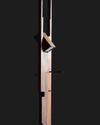
Parts, Wholes And The Spaces In Between
Sonal Sundararajan introduces Samira Rathod's free-spirited and rebellious explorations in the world of architecture, furniture and design.
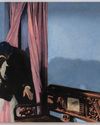
"The Fine Art of Going to the Pictures."
Dr. Banerjee in Dr. Kulkarni's Nursing Home at Chemould Prescott Road brings together 26 paintings featuring a series of dramatic scenes from Hindi and Bengali films. In conversation with Abhay Sardesai, artist Atul Dodiya talks about childhood trips to movie halls, painted figures gripped by tension, and the closeness and remoteness of cinematic images.
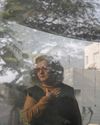
"To Finally Have Something of Your Own to Mine."
Dayanita Singh is the recipient of the coveted 2022 Hasselblad Award. Keeping the photograph at the centre, she speaks to Shreevatsa Nevatia about books, book objects, photo novels, exhibitions and museums.
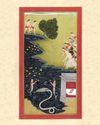
OF DIVINE LOSS
Shaurya Kumar explores the relationship between the subject and object of devotion, finds Aranya.
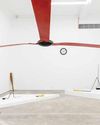
THE PAST AND ITS SHADOWS
Neha Mitra visits two shows and three artists in Mumbai.
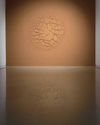
FORCE OF NATURE
Alwar Balasubramaniam dwells on absences and ephemeralities in his new work, states Meera Menezes.
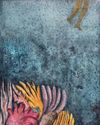
SHAPES OF WATER
Devika Sundar's works delineate the murky, malleable boundaries between the human body and the organic world, says Joshua Muyiwa.
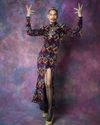
INTIMATIONS OF INTIMACY
Sunil Gupta shares his journey with Gautami Reddy.
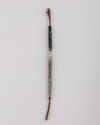
THE FRACTURED PROSPECT
Nocturnal landscapes as ruins in the making? Adwait Singh looks at Biraaj Dodiya's scenes of loss.
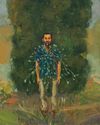
TEETERING BEYOND OUR GRASP
Meera Menezes traces Mahesh Baliga's journey from Moodabidri to London.